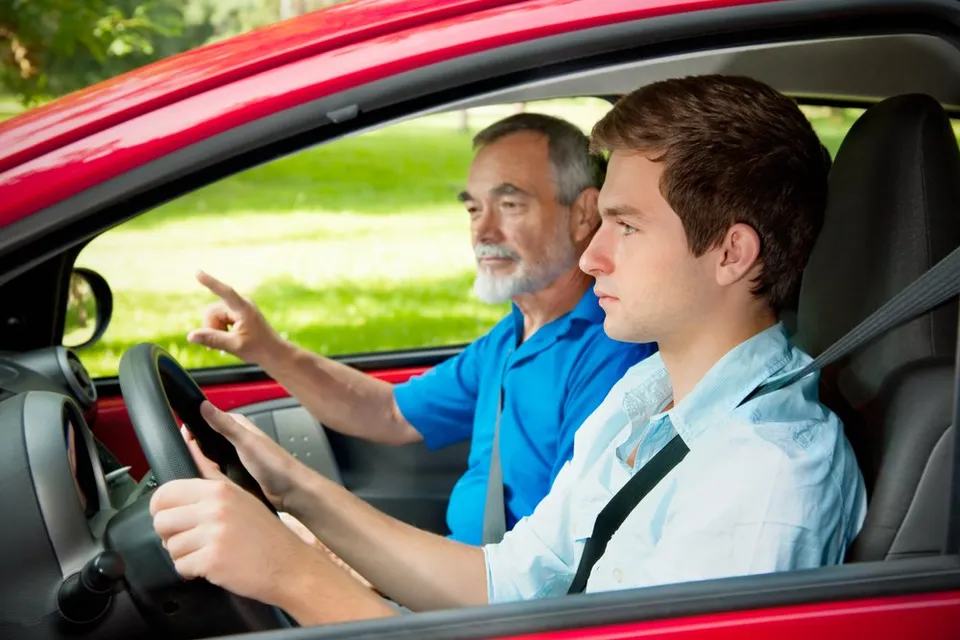Graduated Driver Licenses
- August 25, 2016 @ 3:41 pm
- Written by adminrtl
- Categories: Accident | Auto Accidents | Florida | Motor Vehicle Accidents

Do Graduated Driver Licenses Do Enough to Protect Teens?
Setting a curfew is a great way to hold your teen accountable and illustrate that driving is a privilege. Many parents set curfews so they know their kids will be home safe by a certain time, especially once they begin driving. In setting a curfew, there’s probably one factor parents don’t frequently consider—car accidents.
Most fatal nighttime car accidents involving teens occur before midnight. Florida, along with many other states, offers graduated driver licensing to limit the times when teens are on the road—but is it enough?
Florida Graduated Driver Licensing
Florida law stipulates 16-year-olds may drive from 6 a.m to 11 p.m. If they need to drive during other times, they must have an adult who is 21 or older in the car with them. Similarly, 17-year-olds are restricted to driving between 5 a.m. and 1 a.m. Once a teen turns 18, they have no restrictions on their licenses.
This is where parental curfews can really save lives.
According to a new report published by the CDC, while all drivers are at greater risk for fatal car accidents at night, teens are especially so. The study, which focused on 16 and 17-year-olds, found that even though teens mostly drove during the day, one-third of teen fatal car accidents happen at night and that 57% of those fatal crashes happen before midnight. The authors of the report provide a solution: earlier restrictions or curfews.
Setting Driving Rules for Your Teen
A curfew or other driving restrictions can help keep your teen safe as they grow more comfortable driving. While driver’s permits provide some time to learn the rules of the road, they don’t always provide enough time for teens to get familiar with driving in dangerous weather conditions, at night, or in noisy vehicles. Parents can step in and provide that assistance by setting driving rules for their teens.
A lot of the driving behaviors our children see us exhibiting will likely transfer to their driving. Chances are, if they see you talking on your phone while you drive, they’ll figure it’s ok for them to do it, too. Setting clear driving rules can help make expectations clear and protect your teen on the road. It’s important, though, for parents to abide by them as much as possible to set the example.
Common driving rules that can lower accident risk include:
- Be clear on who can be in the vehicle and when. Passengers can provide quite a distraction for drivers—especially when they’re excited teens heading out to have fun or go watch the high school football game. Because of the attention passengers can demand, limiting the number of passengers or which passengers your teen is allowed to have in their vehicle can help them better acclimate to driving.
- Set limits on where they can drive. When teens are just starting to drive, a GPS can provide an unnecessary distraction. Let your teen know how far from home they’re allowed to drive or specific places they can drive to (the movies, their best friend’s house, the local burger joint, etc.). These limits can be expanded with time and experience.
- Set clear expectations on appropriate driving behaviors. You’ll want to teach your teen about the dangers of distracted driving. Let them know it’s safer to wait to answer a text and that they shouldn’t eat while driving. And the hard part? Make sure you aren’t driving while distracted either and set a good example.
- Limit the hours when your teen can drive. Nighttime driving can be dangerous for even the most experienced drivers, especially on more rural roads that don’t have lights. Having a driving curfew that gets them home earlier can help save their lives. It also means you may have to pick them up from a friend’s house after a party, but better safe than sorry.
Being a teen is challenging enough—add driving to the mix and sometimes the odds can feel stacked. By setting clear expectations and limits, you can help your teen adjust well to driving and help them become safe drivers.
Teen Injured in a Car Accident? Consult with a Tampa Car Accident Lawyer
If your teen has been injured in a car accident, a Tampa car accident lawyer can help you and your family determine what your next steps should be. After seeking medical care, a Tampa car accident lawyer can assist with making insurance claims or filing a suit against a reckless driver.
Missed school, expensive medical bills, and therapy can add up. And if your teen needs a caretaker, you may suffer lost wages as well. Sometimes, insurance doesn’t cover it all. Seeking legal advice from a Tampa car accident lawyer may provide you with options you hadn’t considered before. Don’t hesitate, let an experienced Tampa car accident lawyer help you plan for the future so your family can recover.
